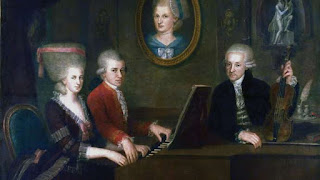Italo Calvino's parents were both Italian botanists who had travelled to Mexico, and then Cuba to pursue scientific research. Italo was born in 1923. They returned to Italy soon afterwards, and Mario grew up in the countryside around San Remo, on the Ligurian coast in the north-west of the country. This rural environment and his parents' profession had a strong influence on Italo's writing.
Their left-wing politics and atheism also had a great effect on Italo's writing, especially his earlier stuff and his journalism. Always the true artist, Calvino's prose is free from heavy-handed political messages, despite his committed involvement in the cause of communism. In the late 1950s Calvino, like many European intellectuals, became disillusioned with communism due to the rise of the Soviet Union and Uncle Joe Stalin's regime's criminal brutality.
I find Calvino was sometimes prone to writing baffling scientific-cum-philosophical tosh, and overly-clever, contrived post-modernism, but "Marcovaldo" is one of Calvino's more endearing tales of one man's frustration. The novel's simple literary style is refreshing and easy to grasp without being dumbed down, and no doubt for that reason it's a key text in Italian schools.
"The Moon and the Bonfires" (1950) is Cesare Pavese's best-known novel. "The Adventures of Pinocchio" (1883) by Carlo Collodi is a world-famous children's book. "The Carriage of the Spirits" by Ennio Morricone is a track from the soundtrack to Sergio Leone's spaghetti western masterpiece "The Good, The Bad and the Ugly".
Zur Rezeption von Franz Kafka und Samuel Beckett in Rumänien
Receptarea lui Franz Kafka şi a lui Samuel Beckett în România Abstract Teoria receptării a înregistrat în ultimii ani o dezvoltare impresionantă, astfel încăt s-au putut trasa linii generale de descriere a unei direcţii de receptare în conformitate cu anumite tipologii estetice care marchează receptarea literară la nivel de receptor cult şi instruit. Acestea sunt premisele principale de la care porneşte cercetătorul în căutarea sa de modele şi modalităţi literare de receptare. S-a vorbit astfel de patologii de receptare, de estetica personajului şi nu în ultimul rănd de o receptare critică a operei literare. Sarcina cu care se confruntă cercetătorul în demersul său este de a descoperi în ce măsură opera examinată capătă caracter normativ la nivelul unui grup de receptori care aderă la stilul, forma şi limbajul literar al autorului receptat. Franz Kafka şi Samuel Beckett se integrează în categoria scriitorilor emblematici ai modernităţii şi drept urmare am considerat că un stud...

Comments